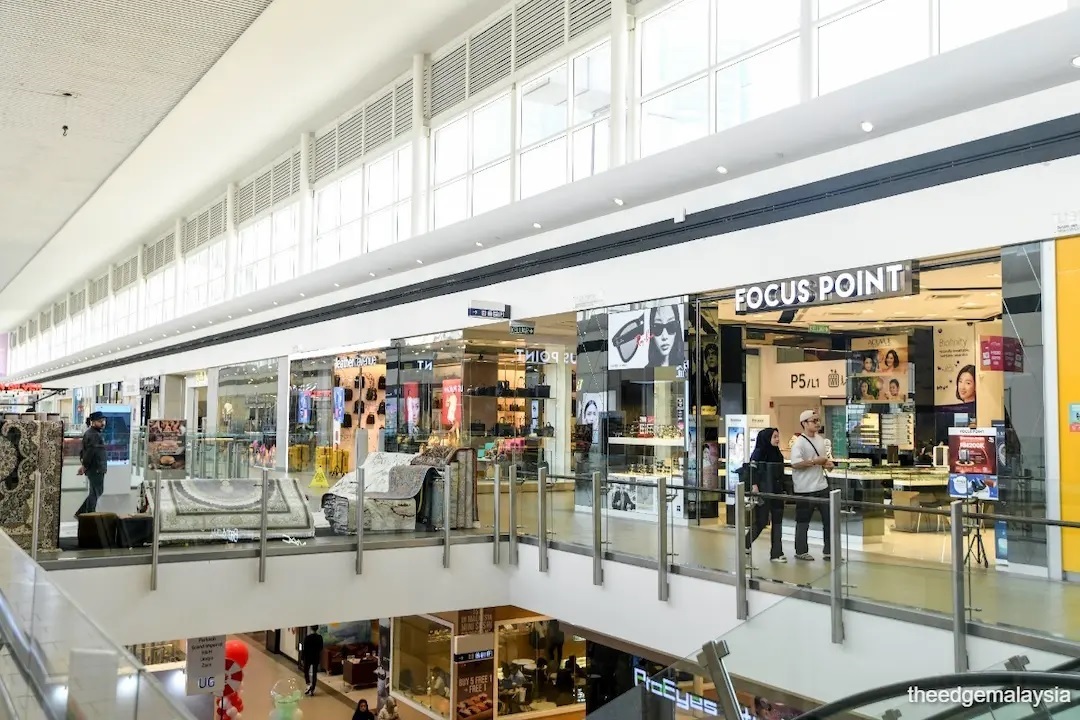Shopping mall operators urge deferment, staggered SST expansion amid rising cost concerns

- The Malaysia Shopping Malls Association pointed to ongoing global economic uncertainties, including tariff wars, supply chain disruptions, and intensifying regional and digital competition, which continue to challenge retail businesses.
- They warn that these compounding cost pressures could jeopardise business continuity and dampen overall market sentiment
KUALA LUMPUR (June 13): The Malaysia Shopping Malls Association (PPK Malaysia), which represents shopping mall operators across the country, is calling for a deferment of the government's decision to expand the sales and service tax (SST) to include rental and leasing services, construction and beauty services, until after Visit Malaysia Year 2026, and to take a staggered approach to it thereafter.
This is because the retail sector is already under "serious pressure" as escalating costs and external disruptions begin to undermine the sector's operational stability and long-term viability, it said in a statement on Thursday evening.
The association pointed to ongoing global economic uncertainties, including tariff wars, supply chain disruptions, and intensifying regional and digital competition, which continue to challenge retail businesses. They warn that these compounding cost pressures could jeopardise business continuity and dampen overall market sentiment.
Key among the latest cost escalations are the recently announced 8% SST on commercial rental and leasing services and 6% SST on construction services, both effective July 1, 2025, it said. An electricity tariff hike is also expected on the same date.
Further adding to the financial burden are a new RM10 stamping fee on employment contracts effective Jan 1, 2026, and fuel and subsidy rationalisation anticipated in the second half of 2025, it noted.
"Assessment rates have already seen increases of approximately 25% and licence fees under Jabatan Keselamatan dan Kesihatan Perkerjaan (JKKP) (have) increased by up to 600%. To add to the costs, minimum wages have been hiked to RM1,700 effective Feb 1, 2025.
"Retailers will be forced to absorb or pass down these costs to consumers, which will amplify inflation, curb consumer spending, and further squeeze retailers’ business performance and threaten mall sustainability and continuity," PPK Malaysia said.
Retailers are already facing additional challenges, such as the US-led tariff war redirecting goods to Malaysia, leading to price reductions and eroding local margins, it said. This situation is further exacerbated by unregulated foreign online platforms, particularly from China, which offer under-priced goods, creating an uneven playing field for physical retailers.
Raise the exemption threshold to RM2 mil in annual sales
Besides a deferment of the SST expansion, it proposed a staggered SST approach, starting at 3% and gradually increasing to 8% over a five-year period, and to raise the SST exemption threshold to RM2 million in annual sales to protect small businesses.
It also suggested that the government exclude service charges from SST, which it said are not rental income but rather a recovery of shared-area operational costs.
PPK Malaysia acknowledged the government’s fiscal objectives but stressed the importance of implementing such measures in alignment with prevailing industry conditions.
"A phased and consultative engagement would be a constructive way forward to support business continuity while contributing to broader economic resilience," it added, while expressing its readiness to engage with the Ministry of Finance and relevant agencies to share industry perspectives and explore more practical, balanced solutions.
Does Malaysia have what it takes to become a Blue Zone, marked by health and longevity? Download a copy of EdgeProp’s Blueprint for Wellness to check out townships that are paving the path towards that.
Never miss out
Sign up to get breaking news, unique insights, event invites and more from EdgeProp.
Latest publications
Malaysia's Most
Loved Property App
The only property app you need. More than 200,000 sale/rent listings and daily property news.
